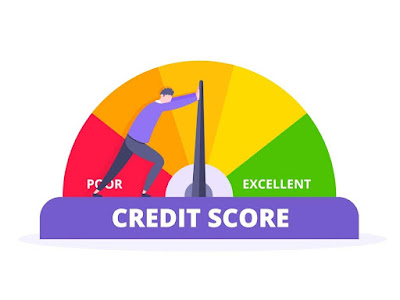Understanding Your Creditworthiness: Demystifying the CBIL Score
Introduction:
In today's world, credit plays a pivotal role in determining our financial stability and opportunities. Lenders and financial institutions use various metrics to assess an individual's creditworthiness, one of which is the Credit Bureau Information Limited (CBIL) score. Whether you're applying for a loan, credit card, or mortgage, understanding your CBIL score is essential. In this article, we'll explore what a CBIL score is, how it is calculated, and why it matters. So, let's dive in!
What is a CBIL Score?
A CBIL score is a numerical representation of an individual's creditworthiness based on their credit history. It is a three-digit number ranging from 300 to 900, with a higher score indicating a stronger credit profile. Lenders use this score to evaluate the risk associated with lending money to a particular individual or business.
Factors Affecting CBIL Score:
Several key factors contribute to the calculation of a CBIL score. While the exact weightage assigned to each factor may vary, the following elements generally influence your score:
a. Payment History: Timely payment of credit card bills and loan EMIs is crucial. Consistent on-time payments positively impact your CBIL score.
b. Credit Utilization Ratio: This ratio reflects the percentage of your available credit limit that you are currently using. A lower utilization ratio indicates responsible credit management.
c. Credit Mix: Having a healthy mix of credit types, such as credit cards, loans, and mortgages, can have a positive influence on your CBIL score.
d. Credit Age: The length of your credit history is an essential factor. Long-standing credit accounts with a good repayment history contribute positively to your CBIL score.
e. Credit Inquiries: Frequent credit inquiries or loan applications can negatively impact your CBIL score. Therefore, it's advisable to limit such inquiries.
Importance of CBIL Score:
Your CBIL score has a significant impact on your financial life. Here are a few reasons why it matters:
a. Loan Approvals: Lenders consider your CBIL score to determine whether you qualify for a loan and the interest rate you'll receive. A higher score increases your chances of loan approval and favorable terms.
b. Interest Rates: A good CBIL score often leads to lower interest rates on loans and credit cards. This can save you a substantial amount of money in interest payments over time.
c. Rental Applications: Landlords and rental agencies may review your CBIL score before approving your rental application. A higher score can enhance your chances of securing a desirable rental property.
d. Insurance Premiums: Some insurance companies consider CBIL scores when determining premiums. A better score can help you obtain more affordable insurance rates.
e. Employment Opportunities: Certain employers may check your CBIL score during the hiring process, especially for positions involving financial responsibilities. A positive score can strengthen your job prospects.
Tips for Improving Your CBIL Score:
If you have a low CBIL score or want to maintain a healthy score, consider the following tips:
a. Pay bills on time: Ensure timely payment of all credit card bills and loan EMIs.
b. Reduce credit utilization: Aim to keep your credit utilization ratio below 30% to demonstrate responsible credit usage.
c. Monitor your credit report: Regularly review your credit report for inaccuracies or fraudulent activities and report any discrepancies to the credit bureau.
d. Maintain a credit mix: A diverse credit portfolio, including credit cards and different types of loans, can boost your score.
e. Limit new credit applications: Avoid applying for multiple credit accounts within a short period as it may signal financial distress.
Conclusion:
Understanding your CBIL score is essential for managing your financial well-being. By knowing the factors that influence your score and taking proactive steps to improve it, you can enhance your creditworthiness, secure better loan terms, and unlock various financial opportunities. Remember, building and maintaining a good CBIL score takes time and discipline, but the long-term benefits are worth the effort.





Post a Comment